good little eaters
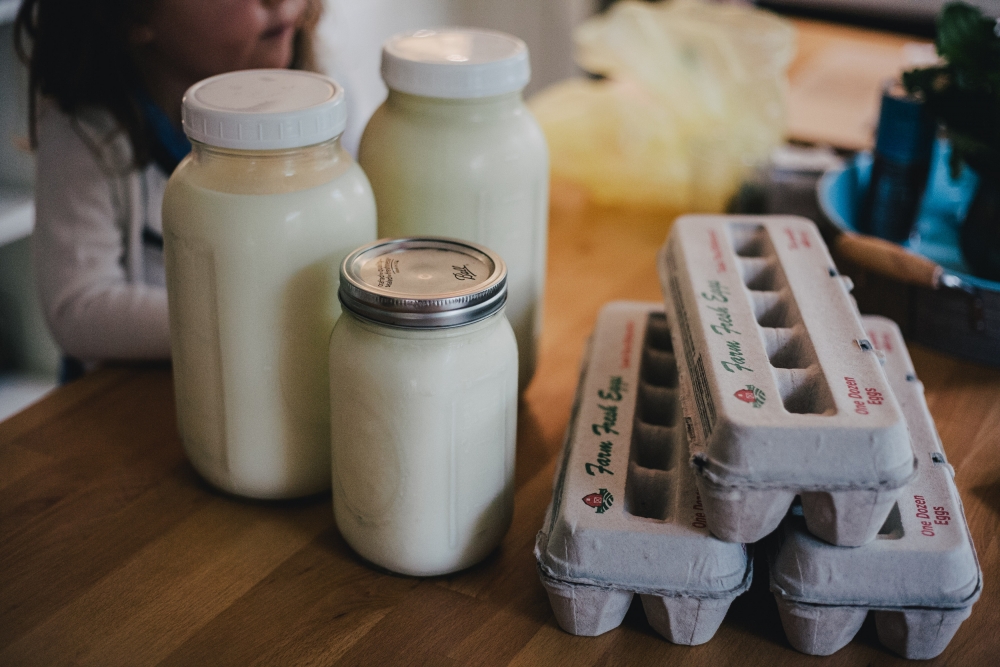
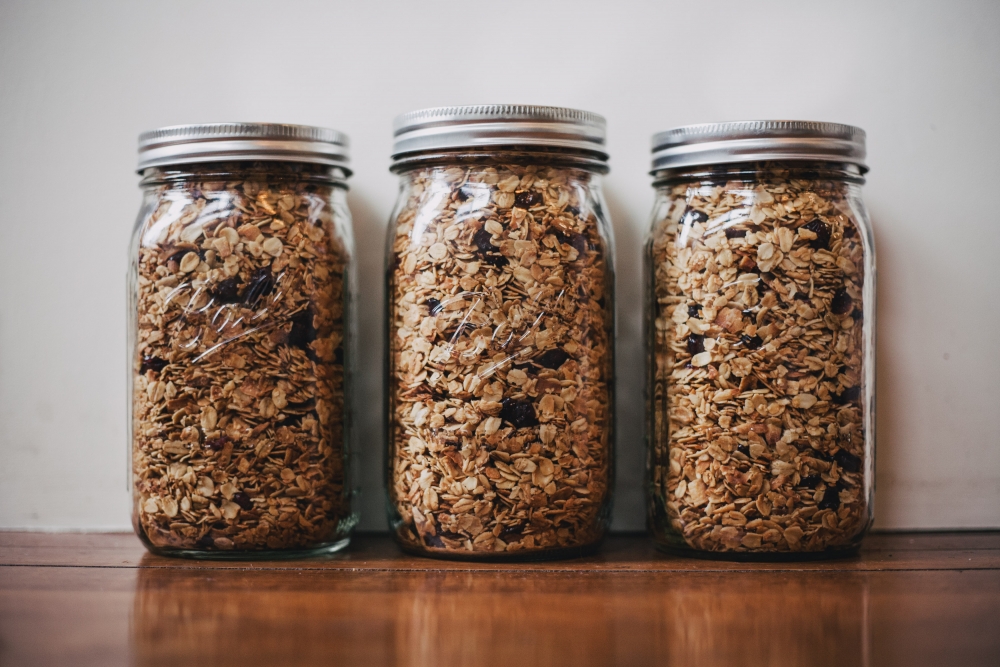
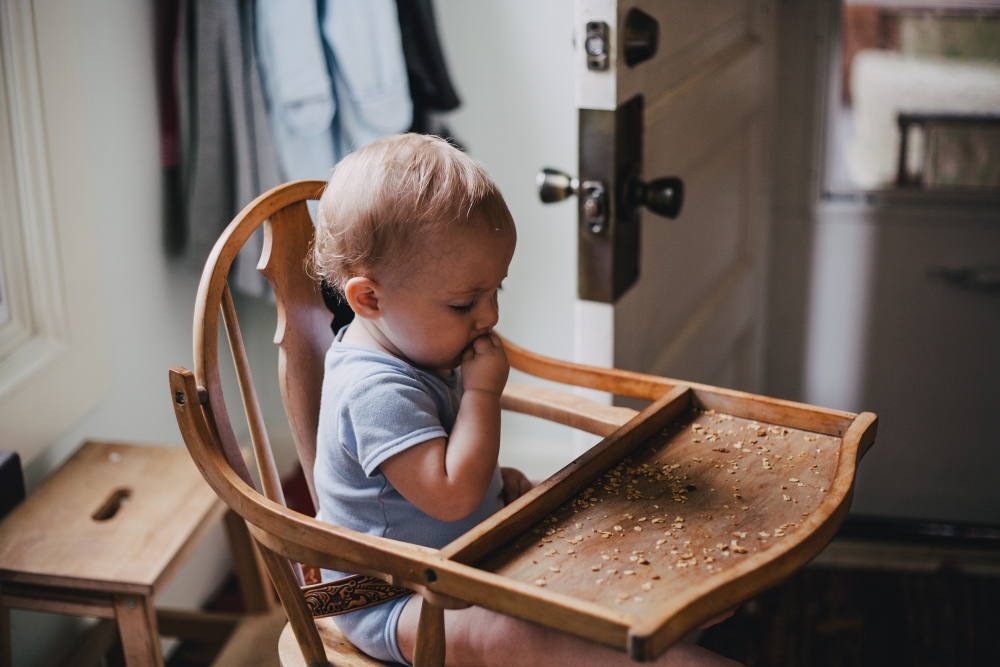
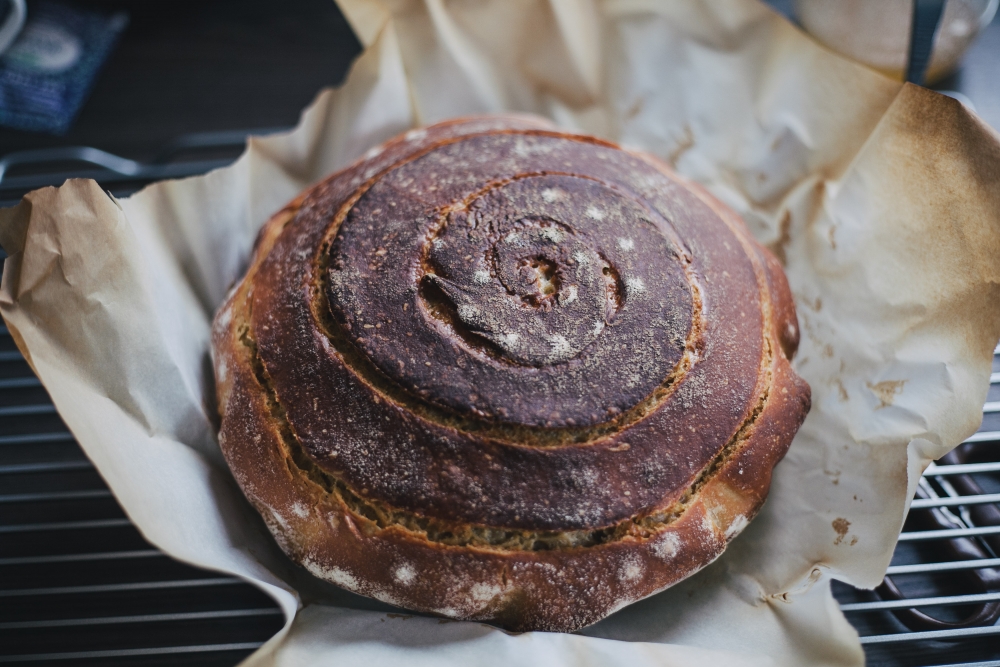




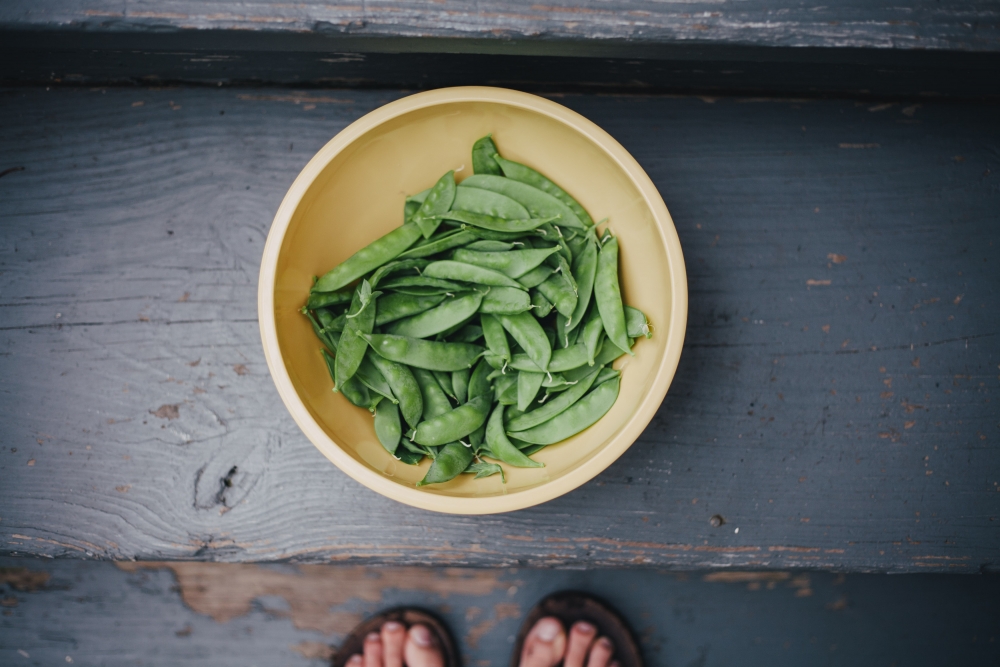
(The pictures waiting in my queue from the last several weeks that happened to be food related: our weekly local egg and dairy haul, homemade granola Molly's recipe and sourdough bread, my little pea-picker.)
I'm only the mama to two little ones. Perhaps that disqualifies me from giving advice, I don't know. But this isn't a "look I'm an expert and my kids are great at everything" post, it's just spreading the love of what's worked well for me in the areas where I've had relative success and hoping y'all will repay the favor (by telling me how to get one year olds to sleep through the night, since I've never been very good at that).
Our culture is weird about feeding kids. We start them on a steady diet of rice cereal and bland purees before they graduate to the carbs menu, oops, I mean, kid's menu, and then we're confused when the sight of anything green on their plates strikes fear into their hearts. Almost all kids are picky at least some of the time, and they will often go in and out of phases; we're not looking for a 100% success rate, just generally good eating. Here are five of my tips for feeding children in a way that is healthy, flows well with the rhythm of family life, and lays the foundation/weathers the storms of pickiness to create good little eaters.
Quickly, where I'm coming from: we're a real food family, this means that we try our best to eat mostly traditional and whole foods based on organic produce, properly-prepared grains, pastured-raised meat, and raw dairy from grazing cows.
Tip 1: You don't have to spend hours making homemade baby food. Feed baby appropriate foods from what the family already buys: smashed egg yolk with butter or olive oil and a pinch of sea salt, plain whole milk yoghurt, smashed banana, avocado, or anything soft enough from the family dinner. Make it delicious! Babies need a little real salt and fat, just like the rest of us! When they move to finger foods, just give them a wide variety of good choices and let them go at it without worrying too much about how much they eat or what they ignore. You're laying the foundation for a good palate! *Go easy on grains for at least the first year, not only because littles love carbs and will fill up on them, but because babies don't produce enough of the enzymes needed to break down grains and therefore they can damage their digestive tract. In fact, it's good to limit carbs for kids of all ages, just to make sure there is room for better stuff.
Tip 2: Resist the allure of kid food. Don't buy. . .what are those things. . .puffs? And ignore the kids menu, unless the fare is similar to the regular menu. This is not to be snooty: food aimed at kids is usually plain and carby. Of course kids love it (I can get down with chicken fingers too!), and developing preferences is natural. But while you can't control their preferences, they will only develop preferences from among the foods you offer them, so just makes sure they're all (or mostly!) good things. When eating out, give portions of your adult entree and order extra sides (like fresh fruit or steamed veggies) if there won't be enough food. (Older kids could probably split a real entree.) At home, kids can participate wholly in one of the heartbeats of family life by sitting down with everyone and eating what the rest of the family is eating. Staying at the table (starting around age 2 or 3) until everyone is done also encourages interacting with family members and good eating habits without the rush to get back to playing.
Tip 3: Raise your expectations and check your own attitude. Give your kids a little more credit! There's no reason a toddler can't like chicken tikka masala or salmon with roasted asparagus. Serve it to them confidently! Kids don't have preconceived notions, so they're at the perfect stage to try new things. Even though I don't like offal as much as I would like to, Tenny once downed half a thing of chicken liver mousse at a restaurant! They don't know that salad isn't generally considered "kid food", they have no concept of kid food at all, unless it is taught to them. Be careful what your kids hear you saying about food, even if you personally don't like it. Don't mumble "I don't know if you're going to like this" while spooning guacamole onto their plate, don't say to someone else "he doesn't like onions" in front of your child, and certainly don't say "honey you won't/don't like that" as they reach for something at the church potluck!
Tip 4: Just one bite. Continue to serve your child things they have previously rejected, since moods and palates change, sometimes from day to day. Don't react when they emphatically declare they don't like green beans, just shrug and say "green beans are yummy" and insist that they always take at least one bite. The bite might turn into many when they realize they're actually pretty good with a little butter and lemon (again, make sure it's delicious, serving veggies and salad with fat makes them taste good to all of us and makes the fat-soluble vitamins available), or they may not touch them again. Either one is fine. Even as adults we have food preferences. Personally I don't really care for mushrooms, but if there is a dish with mushrooms in it, Indy and I will take a bite together in solidarity. Perhaps they hate the whole dish and won't eat anything at all. Alan and I really struggle with this one, but try not to goad or mention dessert a million times. Unless they are truly actively eating and just got behind, wrap up their plate and put it in the fridge when everyone finishes eating. They don't get to lollygag because they want to earn ice cream. They won't starve, even if you don't feed them snack foods later (which you shouldn't). If they're hungry in a couple of hours you might let them finish their dinner, but dessert is of course off the table at that point.
Tip 5: This one is simple: limit or eliminate snacks. If they're snacking at 5, they won't be hungry for dinner at 6. We don't regularly do any snacks (though Indy does drink raw milk twice a day at set times, which is essentially a snack for her). This of course means that Indy also can't get herself food whenever she wants, and she certainly can't go into the fridge unless she's been asked to retrieve something. If they still eat dinner, a set 3 pm snack might fit well into your family's rhythm, but if I ate as many fishy crackers as I see most children consuming, I wouldn't have room for dinner either.
In all of this remember to just relax. Decide on your game plan, stick to it, and then don't worry. No one will starve, family life will go on smoothly (well, as smoothly as it ever goes) without everyone dashing around to meet the demands of picky littles, and you'll give your kids the foundation to develop good and healthy eating habits and a willingness to try new things.

